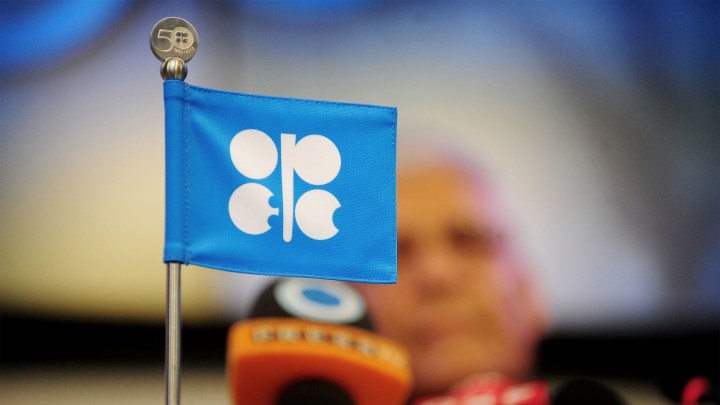
Oil price war: U.S. drillers feeling immediate pain

“Double black swan.” That’s how oil analyst Joseph Triepke described the pained oil and gas market in the United States: slammed by soft transportation demand due to the COVID-19 illness, and now body-slammed by a price war initiated Friday and over the weekend by Russia and Saudi Arabia. Crude prices plummeted more than 20% Monday.
The American pain does not seem an accident. For the past decade, U.S. producers have been the new kids on the global oil block, drilling and fracking and stealing customers from the old-school behemoths, the Saudis and Russians. Last Friday, the Russians declared “enough,” inviting producers to drill full bore, crash prices and see who survives.
“The trend underway is that U.S. production has been increasing,” said Christopher Page, senior analyst at Rystad Energy. “And that Russia and Saudi Arabia needed to cut production to accommodate that. And so I think the Russians see this as their opportunity to put some shale producers out of business.”
American shale producers — mostly in West Texas — have high costs and tend to lose money at today’s prices. Some already announced drilling halts, and some analysts expect drill rigs to be idled, companies to declare bankruptcy and workers to lose jobs — on top of a declared 15,000 layoffs in 2019.
“There comes a point in every oilfield market cycle where things get Darwinian,” said Triepke, founder of oil research firm Infill Thinking. “And in this down cycle, that time is now.”
“There comes a point in every … cycle where things get Darwinian. And in this down cycle, that time is now.”
Joseph Triepke, Infill Thinking
The pain could be more severe than the previous price war. In 2014-15, many American drillers responded to low prices by getting leaner and meaner. They got stronger and survived. Today, though, selling prices are significantly lower, and unlike the last crisis, lenders and investors on Wall Street are less likely to provide financial help.
“That’s gone today,” said Ann Fox, CEO of Nine Energy Service, based in Houston. “So this is the real, you know, capital discipline. This is live within your cash flows and that’s it. There’s no access to either of those markets.”
How bloody the shakeout becomes likely depends on how long crude prices stay in the basement. There’s talk in oil circles that the pain of low prices could return the Saudis and Russians to the bargaining table to cut supply and raise prices. But if the price-cutting goes more than a year, the damage could be lasting.
“The Saudi strategy is to go ahead with a price war, until the other members of OPEC cry ‘Uncle,'” said Ed Hirs, energy economist and fellow at the University of Houston. “If the virus begins to meet up with some of the really dire predictions, then we will have a global recession.”
By Christopher Page’s estimate, a prolonged price war could curb U.S. oil supply by 3.6 million barrels per day over two years. That’s more than a quarter of American production.
There’s a lot happening in the world. Through it all, Marketplace is here for you.
You rely on Marketplace to break down the world’s events and tell you how it affects you in a fact-based, approachable way. We rely on your financial support to keep making that possible.
Your donation today powers the independent journalism that you rely on. For just $5/month, you can help sustain Marketplace so we can keep reporting on the things that matter to you.












